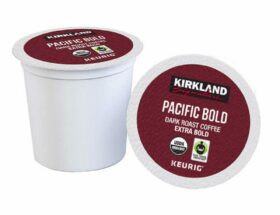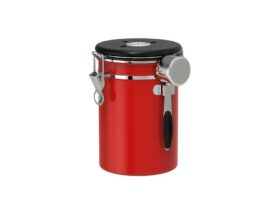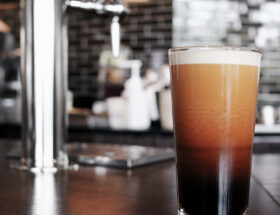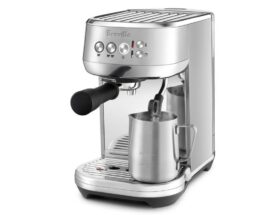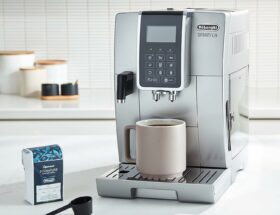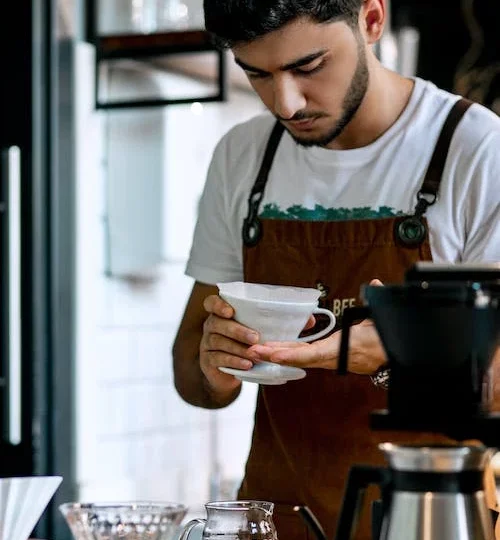
The Influence of Water Quality on Coffee Brewing
In this in-depth guide, we will discuss the various factors that influence coffee brewing, with a particular focus on water quality. From mineral content to pH level and brewing temperature, we will delve into how these elements can impact the flavor profile of your favorite cup of joe. Additionally, we will provide practical tips on how to optimize your water for the best tasting coffee, ensuring that every sip is as delicious as possible. So, grab your coffee mug and let’s dive into the fascinating world of coffee brewing and water quality.
Table of Contents
Water Quality Impacts on Coffee Brewing
If you’re a coffee lover, you know that the taste of your favorite brew can vary. Have you ever stopped to consider that water quality plays a significant role in the flavor of your coffee?
Did you know that coffee is composed of approximately 98% water? That's right, water is the primary ingredient in your cup of joe! So it's no surprise that the quality of the water you use can have a significant impact on the flavor and overall experience of your coffee.
The quality of the water you use can make or break your coffee experience. In this guide, we’ll dive into the fascinating world of coffee brewing and explore how water mineral content, pH level, and brewing temperature can affect the taste of your daily cup of joe. So, let’s grab our mugs and get ready to discover the secrets of brewing the perfect cup of coffee.
Water Quality In-Depth Guide
If you’re a coffee enthusiast, you probably understand the importance of using high-quality beans, investing in a good coffee maker, and perfecting your brewing technique. However, there’s one often overlooked factor that can significantly impact the taste of your coffee – the quality of the water you use.
Coffee brewing water: The unsung hero
Water is the main component of your cup of coffee, making up about 98% of the final product. Its quality plays a crucial role in determining the flavors and aromas you experience. Using poor-quality water can mask the true potential of your coffee beans and lead to a less satisfying brew.
Water quality matters
Several factors contribute to water quality, and each can affect the taste of your coffee in different ways:
- Mineral content: Coffee beans extract flavors and oils more effectively in water with the right balance of minerals. Hard water, high in magnesium and calcium, can create a dull and bitter taste. On the other hand, soft water lacking minerals may result in a flat and insipid brew.
- pH level: The pH level of water can impact the extraction process. Ideally, water with a pH level of around 7 (neutral) is best for coffee brewing. Too high or too low pH levels can lead to sour or bitter-tasting coffee.
- Water source: The source of your water can also affect its quality. Tap water varies significantly depending on your location, and it may contain impurities and chemicals that impact the taste of your coffee. Filtered or bottled water is often a better choice.
Optimizing your water for the perfect brew
You don’t need to be a water scientist to improve the quality of your brewing water. Here are some simple tips to optimize your water for the best tasting coffee:
- Use filtered or bottled water: If your tap water has a noticeable odor or taste, it’s best to avoid using it. Filtered or bottled water will provide a cleaner base for brewing.
- Consider the mineral content: Experiment with different mineral levels to find the optimal balance for your preferred coffee flavor. You can use specialty water products or even add minerals to your water.
- Check the brewing temperature: Water temperature plays a significant role in coffee extraction. Aim for a brewing temperature between 195-205°F (90-96°C) to achieve the best results. Cooler water can result in under-extraction, while hotter water can lead to over-extraction and bitterness.
- Regularly clean your coffee maker: Over time, mineral deposits and impurities can build up in your coffee maker, affecting both water quality and taste. Make sure to clean it regularly to maintain the freshness of your brew.
Enhancing the coffee experience
The quality of your water may seem like a small detail in the coffee brewing process, but its impact on taste should not be underestimated. By paying attention to water quality and following these simple tips, you can elevate your coffee experience and enjoy every sip to its fullest.
So, the next time you reach for your coffee beans, don’t forget to consider the unsung hero that is your brewing water. With a few tweaks and adjustments, you can unlock the true potential of your coffee and savor its rich flavors and aromas like never before.
Step-by-Step Guide: Optimizing Water Quality for Coffee Brewing
1. Assessing Water Quality
Before you start brewing your coffee, it’s essential to assess the quality of your water. Here are a few factors to consider:
- Mineral Content: Check if your water has high mineral content, as it can affect the taste of your coffee.
- pH Level: The ideal pH level for coffee brewing water is around 6.5 to 7.5.
- Impurities: Determine if your water has any impurities like chlorine, which can alter the flavor of your coffee.
2. Filtering Tap Water
If your tap water doesn’t meet the desired quality, it’s worth investing in a water filter. Follow these steps:
- Choose a suitable water filter, such as activated carbon or reverse osmosis, based on your water’s specific needs.
- Install the filter according to the manufacturer’s instructions.
- Regularly replace the filter cartridge to ensure it effectively removes impurities.
3. Selecting Bottled Water
If your tap water is not ideal or convenient for filtering, consider using bottled water. Follow these guidelines:
- Look for bottled water with low mineral content to have better control over the taste of your coffee.
- Check the pH level on the label, aiming for a range of 6.5 to 7.5.
- Avoid flavored or sparkling waters, as they may negatively impact your coffee’s flavor.
4. Testing and Adjusting
To determine the optimal water quality for your coffee, you may need to experiment and make adjustments. Here’s what you can do:
- Brew multiple cups using different water sources or filtration methods.
- Taste each cup and note the differences in flavor, acidity, and overall taste profile.
- Modify your water source or filtration method based on the preferred taste.
5. Controlling Brewing Temperature
Along with water quality, the temperature plays a crucial role in coffee extraction. Follow these recommendations:
- Use water heated to around 195°F to 205°F (90°C to 96°C) for optimal extraction.
- Invest in a reliable thermometer or kettle with temperature control to ensure accuracy.
- Preheat your brewing equipment to maintain a consistent brewing temperature.
6. Regular Maintenance
Maintain the quality of your water and equipment by incorporating these practices:
- Clean your water filter regularly or replace cartridges as recommended by the manufacturer.
- Descale your coffee maker periodically to prevent mineral buildup.
- Rinse all brewing equipment after each use to prevent any residual flavors affecting future brews.
By following these steps, you can harness the power of optimized water quality to enhance the taste, flavor, and overall experience of your coffee brewing. Experiment, adjust, and enjoy the journey of discovering your perfect cup of joe!
Wrap Up
In conclusion, the quality of water used in coffee brewing plays a significant role in determining the taste and flavor of your cup of coffee. Factors such as water mineral content, pH level, and temperature can all impact the extraction process and ultimately affect the overall taste of your coffee.
To optimize your water for the best tasting coffee, consider using filtered water with balanced mineral content. Avoid using distilled or overly purified water, as it may result in a flat or bland coffee taste. Additionally, paying attention to the brewing temperature and ensuring it falls within the recommended range can further enhance the flavor profile of your coffee.
Don’t underestimate the importance of water quality in your coffee brewing journey. By understanding and optimizing these factors, you can unlock the full potential of your favorite coffee beans and enjoy a truly exceptional cup of coffee every time.
We hope you found this in-depth guide on the influence of water quality on coffee brewing helpful. If you have any questions or additional insights to share, please feel free to leave a comment below. We’d love to hear from you!
And if you’re looking to further expand your knowledge and explore different aspects of coffee, check out these related articles:
- How to Make Vietnamese Coffee: The Strong, Bold Coffee
- How to Hario V60: The Ultimate Guide to Making Perfect Coffee
- How to Siphon Coffee: The Slow and Elegant Way to Brew a Perfect Cup
- How to Aeropress: The Ultimate Guide to Making Amazing Coffee at Home
- How to Drip Coffee: The Best Way to Start Your Day
Happy brewing and cheers to a delicious cup of coffee!

